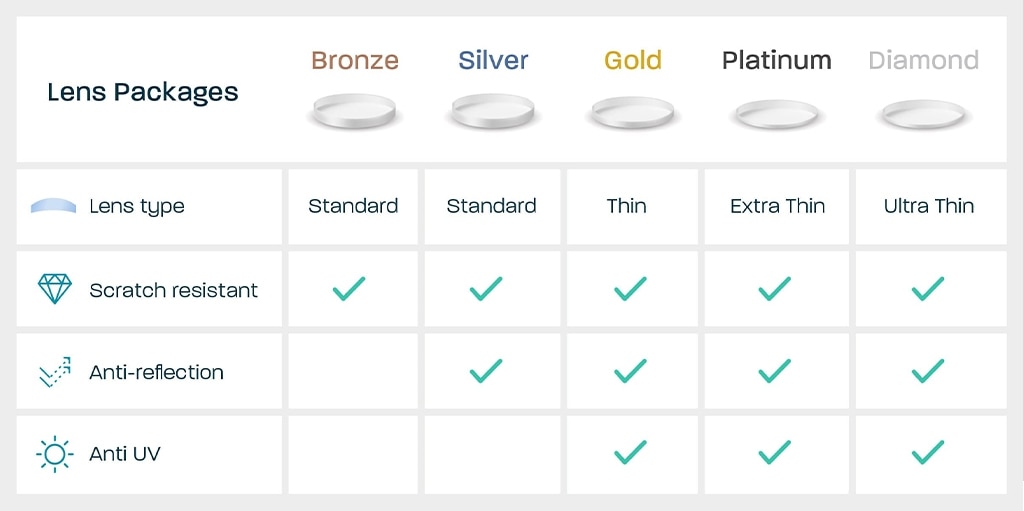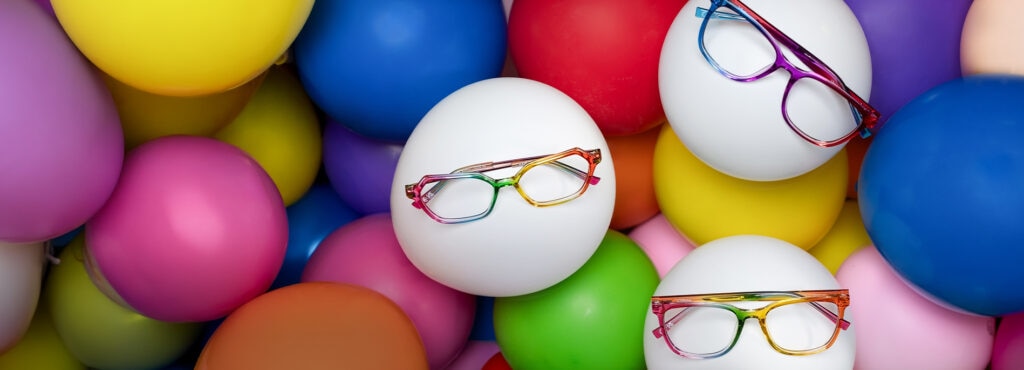Many people are under the impression that the need for UV protection in winter is obsolete. Summer is for sunglasses, right? However, during the colder months, the sun is lower in the sky and therefore UV rays are far more prominent. Also, snow and ice are reflective, so the rays from the sun can reach your eyes from above and below. It is therefore important to stay protected from harmful ultraviolet (UV) radiation.
Overexposure to UV rays can damage the eyes in several ways. It can result in the onset of diseases like cataracts, age-related macular degeneration (AMD) and even some eyelid tumours. To minimise your risk, UV protection is an essential coating to have on your lenses, whether clear or tinted.
Learn about the importance of protecting your eyes against the sun’s harmful UV radiation. Watch our Ask the Optician video below:
An interview with David Hutchfield
We were keen to know more about how to keep our eyes healthy in winter. To get a professional view on the subject, we interviewed David Hutchfield, qualified optician and Head of Professional Service at Glasses Direct.
He said: “It’s not just UV protection, it’s the reduction of glare that’s important as well. So, autumn or winter sun, when the seasons are changing, tends to be problematic either early in the morning when the sun is low or late at night when the sun is setting. Having a good pair of sunglasses with UV protection is pretty much essential. Otherwise, you’re going to get dazzled with glare and problematic reflections as well.”
Eyewear for driving and everyday use
David went on to share which of our products he prefers himself and what he recommends for our customers.
“A Transitions®Drivewear® lens is ideal for this time of year because not only will it protect you against the brightness of the sun, but the polarised filter on it will clear out all the harmful reflections that you get from wet roads and foggy conditions.
“Our Transitions®XTRActive® lens also works behind the windscreen of a car so that’s a good option to have as a general-purpose lens. But the Transitions®Drivewear® lens is solely for sunglasses, you can’t wear them to drive at night and you really wouldn’t want to wear them indoors. Whereas, Transitions®XTRActive® can be worn as a day-to-day pair of glasses, suitable for all conditions. It is capable of changing with the light, whether that’s outdoors or indoors, plus it can react behind the windscreen of a car. However, this lens does not have the specific driving optimisation that the Transitions®Drivewear® lens has. It is not polarised either so the glare reduction capacity is reduced somewhat.
“So, if you do a lot of driving, Transitions®Drivewear® is the one to have. If you want a general day-to-day pair of glasses, Transitions®XTRActive® lenses are probably your best bet. My go-to pair would be the Transitions®XTRActive®, but I keep a Transitions®Drivewear® pair in the car. When I’m going inside shops or coming in and out of bright conditions, I’ll go with Transitions®XTRActive®.”

Benefit from our Transitions® lenses
As discussed, at Glasses, Direct, we offer a range of Transitions® lenses. They seamlessly adapt to changing light and block 100% of UVA/B rays. There are a variety of options to pick from. We would recommend Transitions® Signature® GEN8™ to anyone seeking the practicality of a pair of fully clear prescription glasses indoors that seamlessly transform into sunglasses, within minutes, when you’re outside.
Meanwhile, if you want glasses that react behind the windscreen of your car, there are two options, either Transitions®XTRActive® or Transitions®Drivewear®.
David added: “Lots of people think of Transitions® lenses simply as sunglasses. But what you need to think of them as is general-purpose glasses that you can wear indoors and outdoors, 365 days of the year without having too dark of a tint on them at any time. If you were to have one pair of glasses that would do everything for you, you’d want Transitions®XTRActive® because that will protect you when you’re driving and when you’re outside. Your colour recognition is really good. The speed and darkening time is excellent. If I had a pair of them on now while indoors, you wouldn’t be able to tell because they would be so clear.
“If you do a lot of driving, Transitions®Drivewear® provides a tint that changes from an olive-green colour which is useful for low-sun conditions to a brownish-copper colour when the sun is really bright. This is ideal for driving because your contrast is enhanced so much more with that type of tint. It is the only lens on the market that is specifically attuned to different light levels for driving.”
To discover more about the differences between our range of sophisticated Transitions® lenses, watch this video:
Get a pair of sunglasses or try one of our lens packages
Aside from our Transitions® range, we have the option of dark, gradient and polarised tints. These are perfect if you want a pair of prescription sunglasses with 100% UVA/B protection.
We also have a selection of affordable lens packages which are available as an upgrade to our basic clear-vision lenses. It is important to note that our standard clear lenses are not automatically UV-coated. Yet, by upgrading to our Gold, Platinum, or Diamond packages, you will benefit from a special anti-UV coating. These lenses also have a scratch-resistant coating. This will protect against small abrasions caused when clothing or tissue is used to clean instead of a cleaning cloth. These lens packages even have an anti-reflection coating which eliminates problematic reflections and glare. This is particularly useful for driving at night, helping to minimise the dazzling reflected glare from the car headlights.

Finally, we asked David why it is so important to stay protected from the sun in winter. He said: “It’s not just winter. It’s year-round. Having good UV protection is something that you should have on every pair of glasses that you own. Whether that’s a clear pair or a pair of sunglasses.
“On a clear pair of glasses, it is virtually a clear film on top of the lenses applied as a lens treatment. This won’t impact your ability to drive at night and it won’t affect your appreciation of colour but what it will do is protect your eyes. My advice would simply be, whatever pair of glasses you have, make sure you have a UV filter.”




